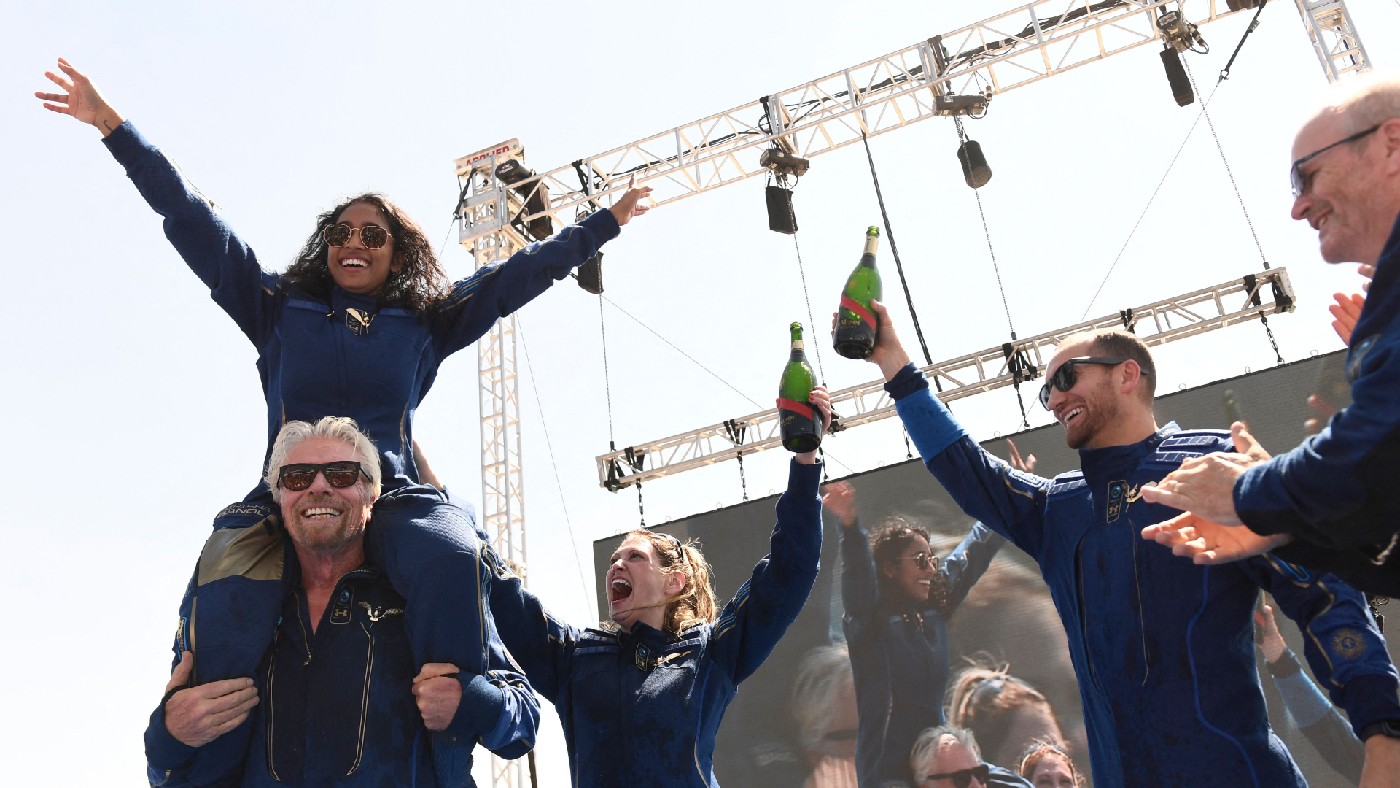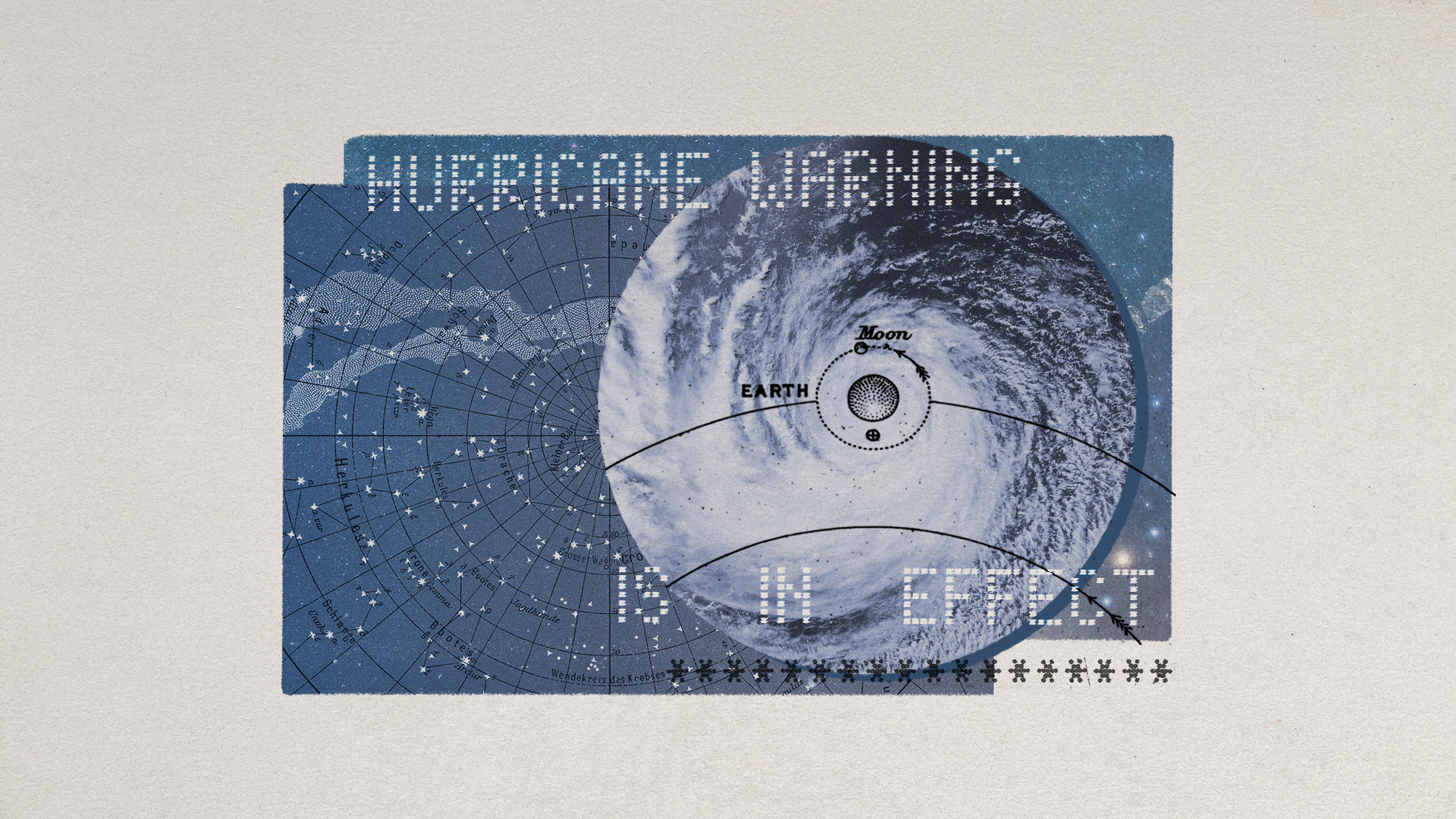Richard Branson’s Virgin Galactic and Jeff Bezos’s Blue Origin: the new space race?
Branson has declared space open for business. Is that still a pie in the sky?

A free daily email with the biggest news stories of the day – and the best features from TheWeek.com
You are now subscribed
Your newsletter sign-up was successful
Virgin Galactic’s successful test flight last weekend enabled Richard Branson “to claim the crown of the first billionaire to make it into space”, said James Phillipps on Citywire – beating Amazon supremo Jeff Bezos’s Blue Origin venture by a matter of days. “The battle of egos” between the pair, and Elon Musk’s SpaceX, has created “a fresh wave of interest in the commercial opportunities beyond Earth”.
And the Branson coterie has been quick to capitalise on it. A new investment trust, Seraphim Space – chaired by former Virgin Galactic president Will Whitehorn – floated in London this week, providing “the first actively managed way” for the average investor to gain exposure to potentially “stellar” returns. Punters seemed very willing “to explore a new frontier”, said Naomi Ackerman in the London Evening Standard. Shares in Seraphim, which is backed by Airbus, climbed by 5.5% in early trading.
Let’s not get carried away, said Matthew Field in The Daily Telegraph. Branson might have achieved “weightlessness” as he skirted the edge of space, but shares in New York-listed Virgin Galactic fell to Earth with a bump this week on news that the company needs to raise another $500m of equity to fund its commercial launch next year. The 14% plunge was the latest shock for shareholders.
The Week
Escape your echo chamber. Get the facts behind the news, plus analysis from multiple perspectives.

Sign up for The Week's Free Newsletters
From our morning news briefing to a weekly Good News Newsletter, get the best of The Week delivered directly to your inbox.
From our morning news briefing to a weekly Good News Newsletter, get the best of The Week delivered directly to your inbox.
Branson and Bezos see their flights “as the beginning of a new stage in commercial space travel”, said Sarah McBride on Bloomberg Businessweek. But Virgin Galactic has been a pioneer for the space industry in other ways too. In 2019, it went public after merging with a special purpose acquisition vehicle (Spac) – “a then-obscure financial tool” that has since been adopted by a host of “risky companies”. Branson’s maiden flight may have validated Space Spacs, but it has also helped launch a dicey trend.
Virgin aims to take tourists to the edge of space “at a rate of more than one flight a day”, said Richard Waters in the FT. More than 600 people have so far put down an average of $130,000 to fly. “However, with room for only four passengers on each flight”, there’s “a serious shortage of seats in the short term”, and no firm timetable for when it will scale up commercial operations.
Galactic’s $8.3bn valuation may be hard to justify, said Alex Brummer in the Daily Mail. But fair play to Branson: his “space escapade” is the culmination of a long obsession. A pity that it coincides with such a parlous situation in the terrestrial air industry on which our economies depend. Branson’s Virgin Atlantic, like all the others, is foundering. Arguably, “his most important mission isn’t in outer space but over the Atlantic”.
A free daily email with the biggest news stories of the day – and the best features from TheWeek.com
-
 How the FCC’s ‘equal time’ rule works
How the FCC’s ‘equal time’ rule worksIn the Spotlight The law is at the heart of the Colbert-CBS conflict
-
 What is the endgame in the DHS shutdown?
What is the endgame in the DHS shutdown?Today’s Big Question Democrats want to rein in ICE’s immigration crackdown
-
 ‘Poor time management isn’t just an inconvenience’
‘Poor time management isn’t just an inconvenience’Instant Opinion Opinion, comment and editorials of the day
-
 Moon dust has earthly elements thanks to a magnetic bridge
Moon dust has earthly elements thanks to a magnetic bridgeUnder the radar The substances could help supply a lunar base
-
 Blue Origin launches Mars probes in NASA debut
Blue Origin launches Mars probes in NASA debutSpeed Read The New Glenn rocket is carrying small twin spacecraft toward Mars as part of NASA’s Escapade mission
-
 NASA is moving away from tracking climate change
NASA is moving away from tracking climate changeThe Explainer Climate missions could be going dark
-
 Hurricanes are not exclusive to Earth. They can happen in space.
Hurricanes are not exclusive to Earth. They can happen in space.Under the radar These storms may cause navigational problems
-
 Answers to how life on Earth began could be stuck on Mars
Answers to how life on Earth began could be stuck on MarsUnder the Radar Donald Trump plans to scrap Nasa's Mars Sample Return mission – stranding test tubes on the Red Planet and ceding potentially valuable information to China
-
 The treasure trove of platinum on the moon
The treasure trove of platinum on the moonUnder the radar This kind of bounty could lead to commercial exploitation
-
 Possible dwarf planet found at edge of solar system
Possible dwarf planet found at edge of solar systemUnder the radar The celestial body has an unusual orbit
-
 Amanda Feilding: the serious legacy of the 'Crackpot Countess'
Amanda Feilding: the serious legacy of the 'Crackpot Countess'In the Spotlight Nicknamed 'Lady Mindbender', eccentric aristocrat was a pioneer in the field of psychedelic research